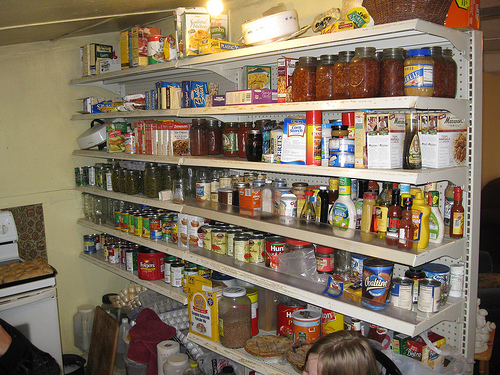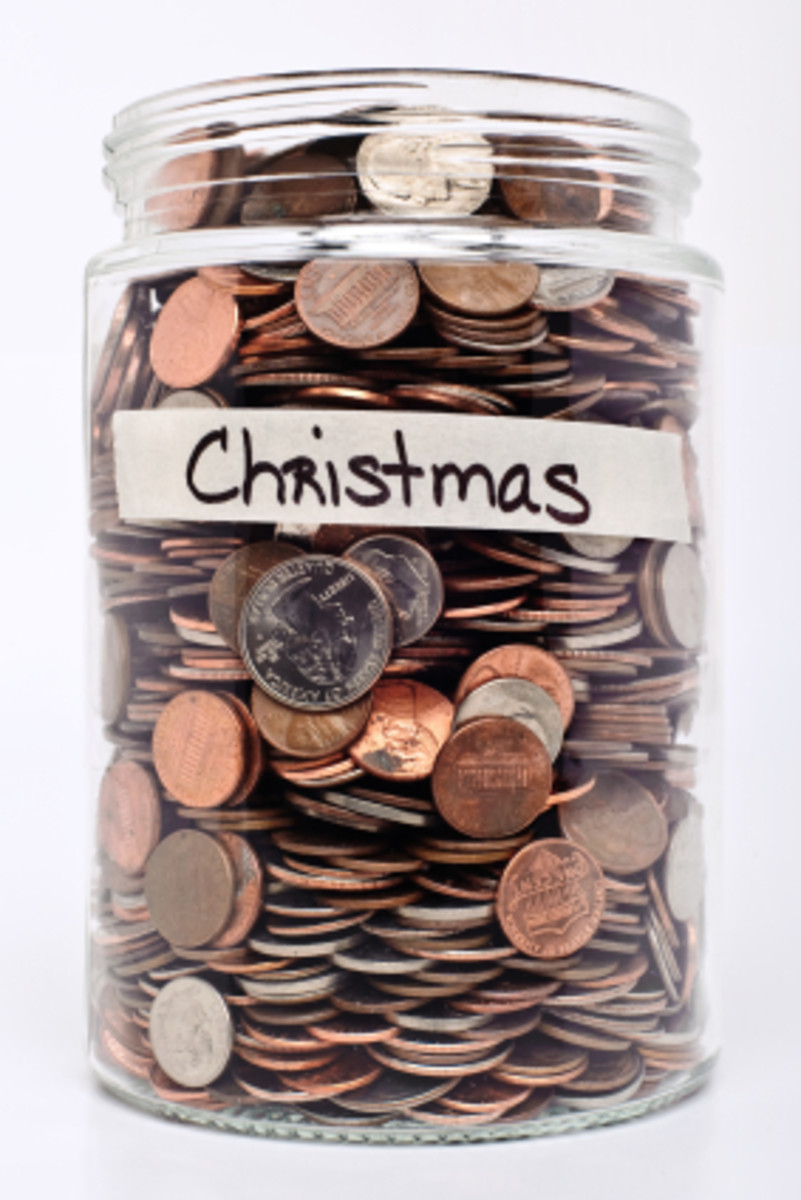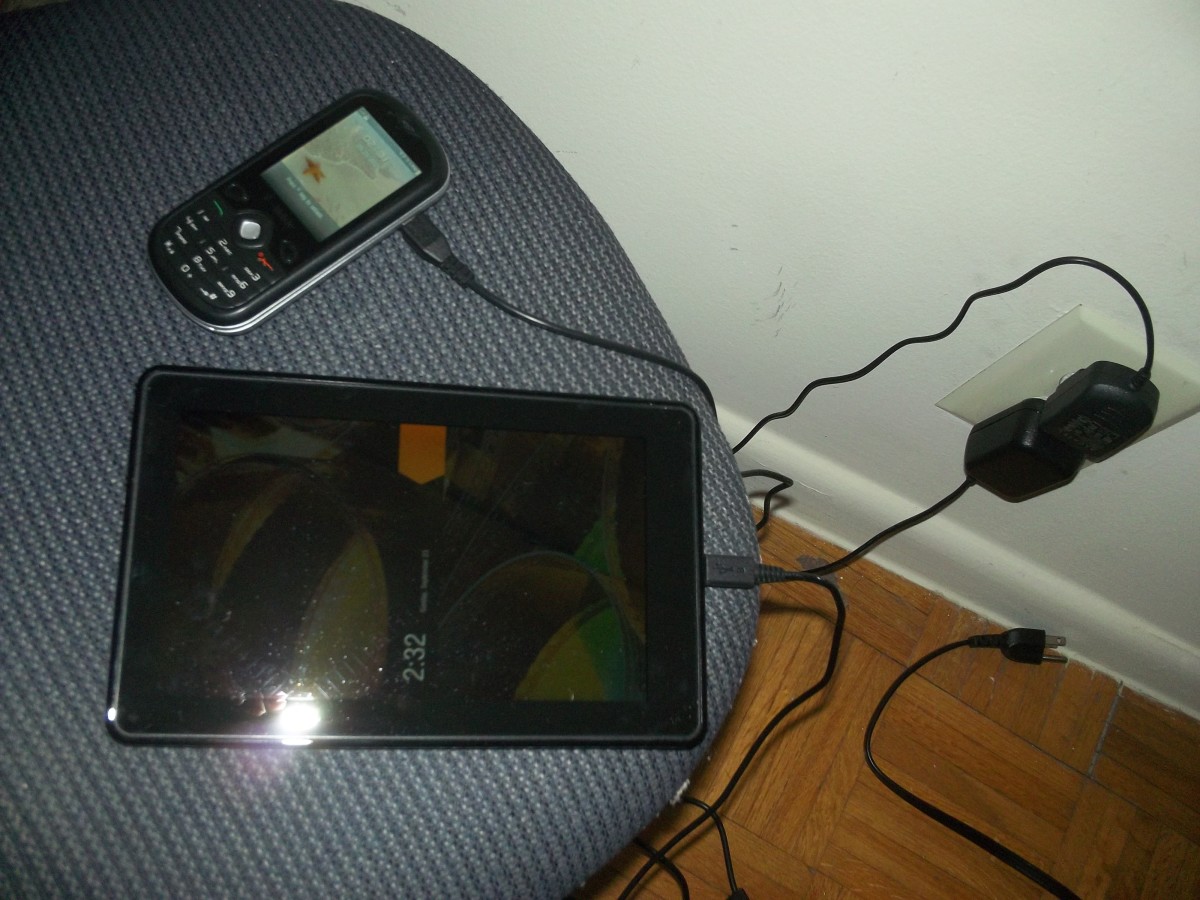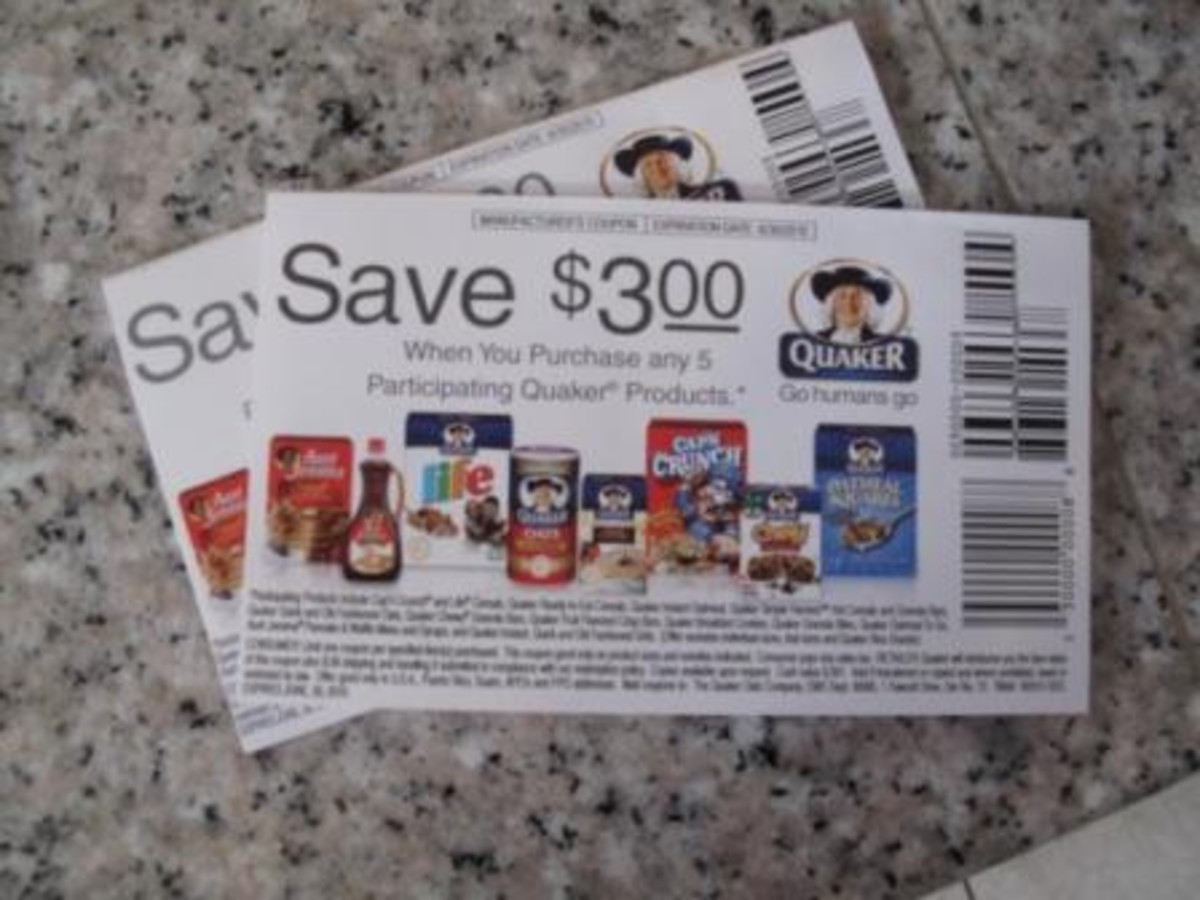Do Those Money Saving Tips Really Save Money?

We All Want to Save Money on Our Grocery Bill
Droughts, hurricanes, frosts, deep freezes, flooding, and snowstorms are likely to increase food prices in some respects. We all want to save money on groceries, and couponing and buying in bulk are two ways often suggested to accomplish this, many people swear by these practices, but they do not always save as much as we would like and sometimes even cost us more than if we hadn't used a single coupon or bought in bulk. Many of us are looking at putting in a home garden to save on the grocery bill, but will any of this save you money?
Does Using Coupons Really Save Money?
Does the couponing practice save money at the checkout counter? Yes and no. Here are a few tips to remember when using coupons:
- Coupons can save you money if used properly for things that you would be buying anyway. Where coupons don't help you save money is when you buy something just because you have a coupon. The rule of thumb when using coupons to save you money is: Use what you buy and buy what you use.
- If you're unfamiliar with a product, buy only one if you must. No matter what kind of a deal you get, don't stock up on it until you know that your family will use it.
- Be sure to compare prices for the generic items without coupons against name brands with coupons before buying items with coupons. Often you can get less expensive off-brand items of equal value for less than name brands with coupons.
- If possible, stock up on coupon items that you normally use when they are on sale.
Does Buying in Bulk Really Save Us Money?
- Buying in bulk can save you money but then again, you may not be saving anything. Always check to see that you are actually saving money buying that item in bulk. Always check the unit price before buying. A case in point I like to use is sugar. Where I live a four-pound bag of sugar costs about $1.70. A twenty-five-pound bag costs about $12.50. If you think that bulk is always cheaper, you'd be fooled into buying the larger quantity. However, when you do the math and figure out how much sugar costs per pound, you would discover that the four-pound bag costs less per pound than the bulk bag. In the case of sugar, buying in four-pound bags rather than twenty-five-pound bags is the less expensive option.
- Buying in bulk won't save you money if you don't use what you buy either. Just because you got a "great deal", if you don't use it, you are paying more than you should for what you buy. Food stored too long might not be worth the space on the shelf or in the freezer.
- Buying quantities of food from salvage grocery stores or from the bargain bin may be a great way to save money. However, here again, you need to be sure that you're saving money and not spending more than you should. Another consideration is that often food obtained from such sources is outdated goods. Even though often these outdated goods are, most likely, still eatable, they might not be as appetizing especially if they sit on your own shelf for any length of time.
- Know that you can store bulk items for long-term storage. Know how long you will need to be storing your items and know how to properly store them for prolonged storage.
- Protect your goods against insect and water damage. Freeze grains that you plan to keep long-term in the freezer and then place them in mylar bags and sealed in quantities that you know you can finish before the item goes bad.
Save on Groceries: Tips
Does Gardening Really Save Us Money?
Gardening can be a money saver if you don't go too big in the beginning and you don't buy into the idea that you need to buy a lot of equipment to get started.
- Start small with easy-to-grow vegetables like tomatoes, lettuce, onions from sets, and green beans. Increase the size of your vegetable garden as you gain experience. You don't want to bite off more than you can chew. A small bed that you can handle in a few minutes after work can often produce more than a big garden that you neglected because you didn't have time to maintain it.
- If you need power equipment to work your garden, rent it rather than buy it, or if you must buy, buy used.
- Plant food that you know that you and your family will eat. Try only one new vegetable per season.
- Learn to take advantage of the spring and fall months.
- Listen to people who have been gardening for a long time to find out what grows where you live and what doesn't.
The Cost of Food Storage
- Count the cost before you buy a freezer for storing perishable foods. Consider the cost of electricity as part of the cost of using a freezer.
- Determine whether you can keep the freezer full. A half-filled freezer will often cost more than the food is worth.
- In the event that the grid goes down for an extended length of time, protect your frozen food by using a backup generator.
- Freezers have been known to break down. Know what you will do if your freezer quits functioning. Your answer may be as simple as making a phone call to a friend who has space in his or her deep freeze.
- If canning, be sure to use the correct canning method for what you are canning. Most foods will need to be canned in a pressure canner. Pickles, fruits, jams, jellies, and high-acid tomatoes are the only foods that don't need to be pressure canned and can be canned using a water bath canner.
- Drying foods could be the best way to preserve if space is an issue, but be sure that you will eat what you dry otherwise you are just wasting your time and money.
- Have a rotation system for your canned goods because you want to use the oldest food first.
The Bottom Line of Savings in Groceries
You can't go wrong by developing a food budget and managing your food purchases. Buying in bulk, gardening, and preserving your food can save you money if you plan it right. Just be sure that you aren't just fooling yourself into thinking that you are saving money when you're actually overspending your hard-earned cash. Know exactly how you're spending your food dollars. The bottom line to saving money in your food budget is knowing the real cost of what you are buying.
If you eat what you buy and buy only what you eat, and what you buy helps you make ends meet, then you have met your goal. Give yourself a pat on the back for a job well done.
This content reflects the personal opinions of the author. It is accurate and true to the best of the author’s knowledge and should not be substituted for impartial fact or advice in legal, political, or personal matters.
© 2013 Cygnet Brown








